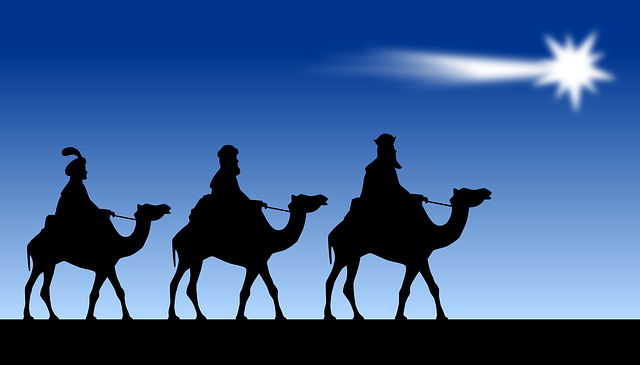Writing in The Spectator (UK) last weekend (11/26/16), Ysenda Maxtone Graham drew attention to the season of Advent. She spoke of Advent as ‘a season of death, judgment, heaven and hell’.
Last Sunday, November 27, was Advent Sunday, the first Sunday in the yearly church calendar. The word advent, from the Latin advenire, means ‘to arrive at’ or ‘to reach’ (a destination). Advent speaks of the arrival of God’s king – not his first coming, as is usually thought but rather, his second.
ADVENT 2016
The focus of Advent is on the return of God’s King and a day of reckoning. The season of Christmas follows, reminding us that we are currently in the era of God’s mercy. As Jesus himself put it, with his first coming, he came not to be served but to serve and give his life as a ransom for many (Mark 10:45).
It is interesting that in our secular, material society, there is a lively interest in the season of Advent. In her article, Ysenda Maxtone Graham writes: ‘I relish the frisson of gloom, foreboding and fear of judgment you get at Advent, alongside the hope. “The Holly and the Ivy” is all very well, but it’s the minor chord at the end of “O Come, O Come, Emmanuel” that I crave.’
‘So do thousands of others,…’ she observes. ‘The Advent service at Salisbury Cathedral, for example, is so oversubscribed these days that it’s repeated on three consecutive evenings, starting on the Friday before Advent Sunday…’
‘More goose-pimples erupt in the naves and transepts of our cathedrals during the Advent service, than at any other in the liturgical year’, she comments. ‘It’s the mixture of bitterness and sweetness that does it,…’
It was Isaiah the prophet, writing in the 8th century BC, who was amongst the first of the prophets to speak, not only of the first coming of God’s Messiah (Isaiah 7:14; 9:6-7), but also the second coming, the return of God’s king (Isaiah 11:1-9).
Isaiah was disappointed with the corruption of the leaders of his day: they took bribes, ignored the poor and were unconcerned about justice. King Ahaz for example, had not only turned his back on God but had even used the Temple gold to pay tribute to Assyria in an attempt to halt its march on Jerusalem.
Yet in the midst of his prophecies concerning God’s judgment on Judah, Isaiah has a message of hope: A shoot shall come out from the stump of Jesse, he says (11:1). Jesse was the father of David, the greatest of the Old Testament kings. Just as David had come from obscurity, so too another king would emerge. He would be even greater than David: The spirit of the Lord shall rest on him, the spirit of wisdom and understanding, the spirit of counsel and might, the spirit of knowledge and the fear of the Lord. His delight shall be in the fear of the Lord (11:2-3).
This king’s rule would be characterized by wisdom, understanding and knowledge. And central to his rule would be his willingness to learn from God. Corruption would not plague his government. And there would be no broken promises. It sounds too good to be true.
Isaiah continues: The wolf shall live with the lamb, the leopard shall lie down with the kid, the calf and the lion and the fatling together, and a little child shall lead them (11:6). This king’s rule would also be marked by unprecedented peace.
But Isaiah doesn’t stop, for in 11:10-16 he goes on to portray people coming from every corner of the world to rally around this ruler. Centuries before Jesus came, Isaiah was opening a window on features of Jesus’ life. Wise men came from the Far East to pay him homage at his birth. And ever since, people from all over the world have been coming to him.
THE FUTURE
The numbers of people attending Advent services in London reveal the deceit of a progressive, secular liberalism which insists that life now is all there is. Such progressivism is cruel. It denies the reality of a day when perfect justice will be done. It also rejects what our hearts tell us – eternity exists (Ecclesiastes 3:11).
As I write, I am praying that we will all have a renewed commitment to shape our priorities, decisions, and relationships in the light of Jesus’ return. His return will happen when we least expect it.
Today is also St Andrew’s Day in the church calendar. It is a day when we recall the Apostle Andrew’s outreach – bringing his brother Peter, as well as others, to meet Jesus.
So, will you join me in a commitment to invite five people to meet Jesus this Christmas? If others around us do not hear how can they have a sure hope of an eternal future?
© John G. Mason

